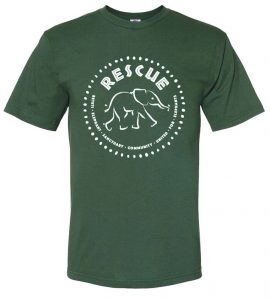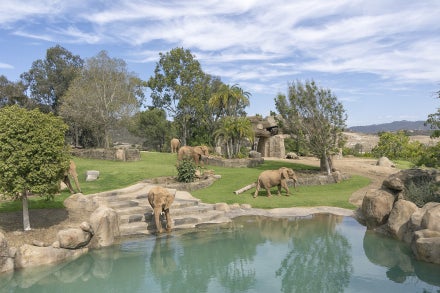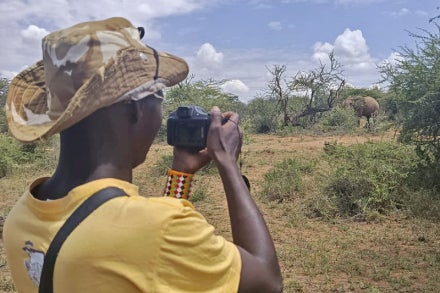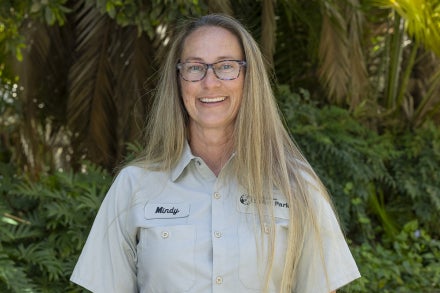
Elyan Shor, Ph.D., looks at community-based conservation, a sustainable approach that integrates the well-being of both wildlife and people.
Humans and wildlife have coexisted in the same landscapes for thousands of years, but our rapidly changing world has shifted the dynamics of human-wildlife interactions. At this modern interface between wildlife and people, there is an ever-growing need for sustainable conservation approaches that address both the protection of animals and respect for the heritage, values, and livelihoods of communities.
Within the last three decades, community-based conservation (CBC) has emerged as an effective approach to sustainable conservation. CBC embraces the notion that the well-being of humans and wildlife are interconnected, and that since people and wildlife share landscapes, conservation should be approached with coexistence in mind. Further, CBC recognizes that conservation is a human activity, and accordingly, should be inclusive of the people most impacted by conservation decisions: the local communities.
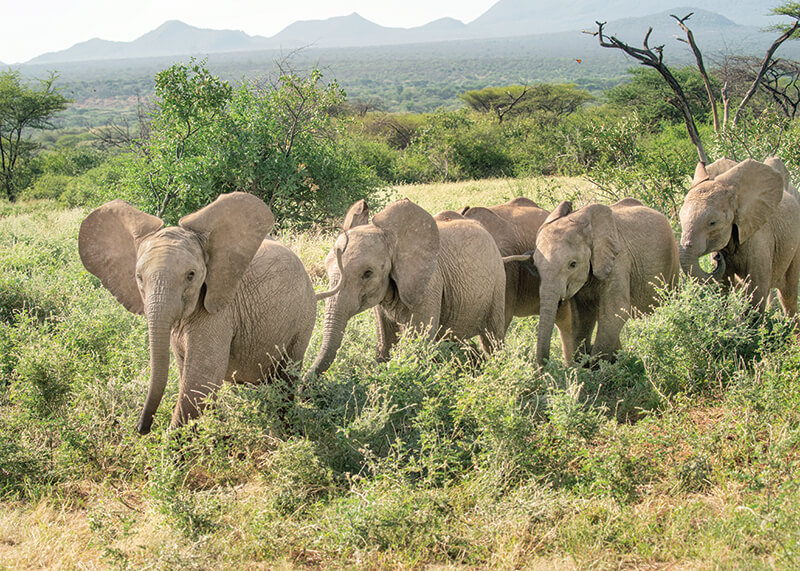
“It’s important to acknowledge that the protection of wildlife often depends on the people who are living with them,” says Kirstie Ruppert, Ph.D., community engagement scientist at San Diego Zoo Wildlife Alliance (SDWZA). “CBC prioritizes participation and empowers local leadership to make decisions about conservation management.”
Kirstie studies the human dimensions of conservation science, with a focus on CBC initiatives in Kenya. She explains that since up to 70 percent of wildlife in Kenya lives outside of government-managed protected areas, there is regular contact between pastoralist communities, their livestock, and wildlife. As such, conservation strategies in the region should address wildlife protection while also reflecting the needs and relationships of local communities. “The local focus of CBC ensures that community voices are elevated when broader conservation plans are developed with NGOs, wildlife and governmental agencies, and other partners,” adds Kirstie. This underscores the key CBC tenet to empower local people to lead and manage local conservation activity, so that not only are conservation decisions made by trusted members of the community, but also so that conservation outputs reflect the community goals.
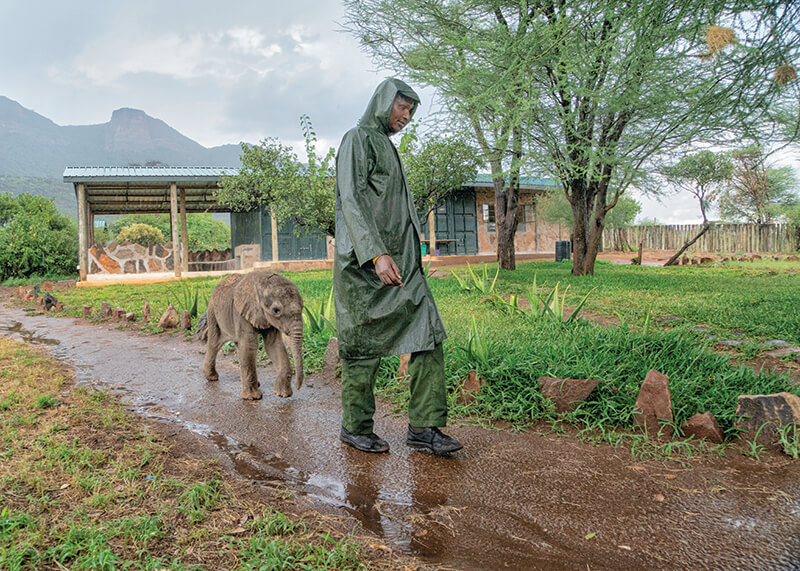
In northern Kenya, Reteti Elephant Sanctuary is a CBC success story. Reteti is a grassroots conservation organization that rehabilitates orphaned elephant calves and releases them back into their home landscapes to be reunited with their family herds. Reteti was officially established in 2016 by members of the local Samburu community, who envisioned it as an opportunity to safeguard elephants while also respecting traditional cultural values and creating opportunities for the community to thrive. Along with caring for and protecting elephants, Reteti provides benefits in the form of employment and training opportunities for their staff, and educational opportunities for community members. Reteti also fosters a sense of pride in their local community and in their local wildlife, both of which are foundational elements in promoting human-wildlife coexistence. In 2020 alone, Reteti rescued 17 orphaned calves, released 10 rehabilitated calves, employed 61 community members, and contributed significantly in raising regional conservation awareness and in preserving the greater elephant population.
SDZWA partners with several CBC initiatives around the world, including Reteti Elephant Sanctuary. SDZWA supports Reteti with technical and scientific capacity enhancement opportunities, including veterinary and wildlife care training, and in the development of hospital and laboratory infrastructure. One of our ongoing collaborations is a study on elephant milk composition; results will be applied in developing a more nutritious and affordable milk formula for orphaned elephants. Another is a study of elephant behavior, aimed at understanding the social and behavioral development of orphaned calves and what they need to thrive after reintroduction to native habitat. There is a mutual support network established as SDZWA and Reteti staff learn and exchange knowledge about elephant care and conservation together.
“We highly value the investment in relationships with community members,” says Kirstie. “Reteti shows the success of establishing a conservation initiative based on community desire and community leadership, and shows how organizations like ours can support their goals.”
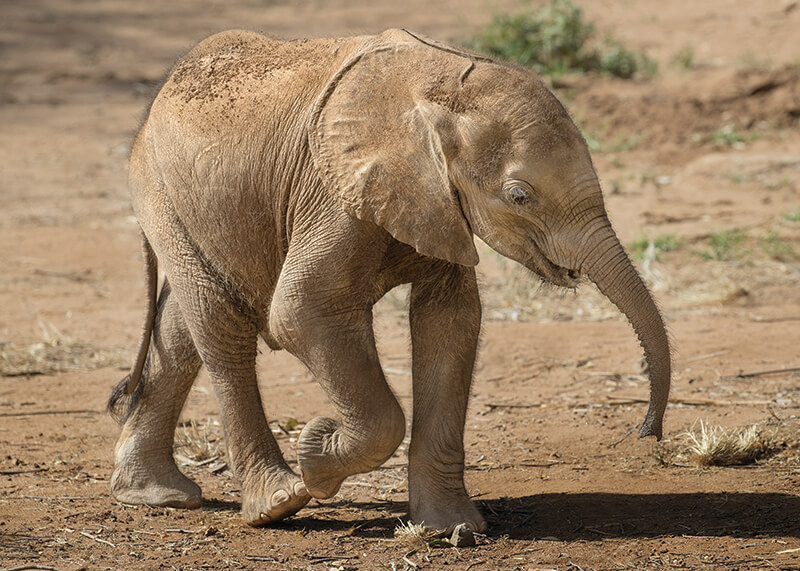
3 reasons why elephants matter
Elephant conservation is a top priority because elephants are a keystone species, meaning they play a critical role in maintaining the health and stability of their entire ecosystem. In fact, elephants do so much for their habitat that they are nicknamed “engineers of the ecosystem.”
1. Elephants extract water: Elephants use their tusks and massive feet to dig water holes, providing access to water that many other animals depend on during the dry season.
2. Elephants boost plant growth: Their nutrient-rich dung fertilizes the soil—and as they digest, elephants disperse seeds up to 40 miles away, leading to new plant growth and sustaining plant genetic diversity across the landscape.
3. Elephants clear new paths: Their sheer size means elephants can easily trample and bulldoze trees. This keeps the savannas clear for grasses to grow, opens gaps in the forest for sunlight to reach vegetation on the forest floor, and flattens pathways that other animals use as movement corridors.
Learn more about Reteti Elephant Sanctuary.
(Top photo by: Ken Bohn, SDZWA)


